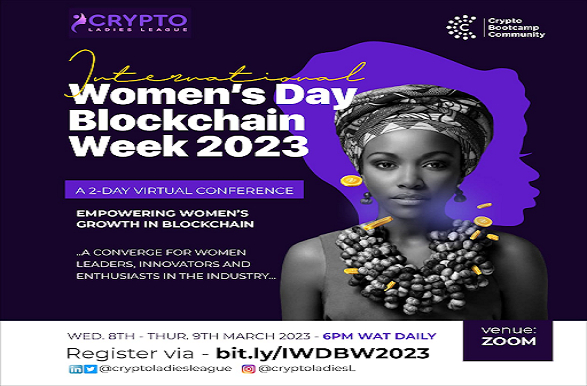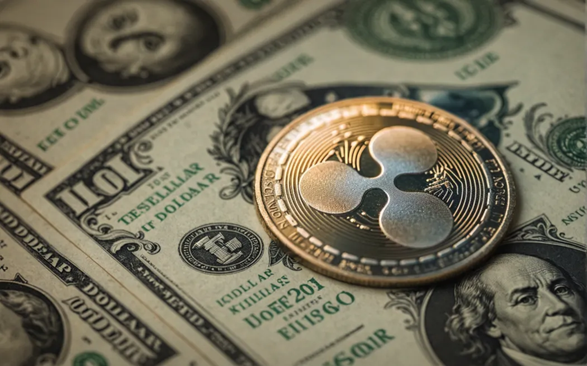The remark above is part of the full text of the President’s speech at the launch of eNaira on 27 October 2021, State House, Abuja FCT.
What does President Buhari's remark mean to the Nigeria crypto industry?
We identify 5 major points to note below:
- President Buhari acknowledges that there is currently the absence of a swift electronic currency system for conducting business and making payments. This challenge has been “exacerbated by the onset of the COVID-19 pandemic and the resurgence of a new Digital Economy”. Enabling swift, secure, and cheap electronic payments for individuals and businesses wherever they may be is one of the benefits of digital currencies, including “private currencies” or cryptocurrencies. No other form of currency is better optimized for the digital economy than digital currencies, whether they come in the form of crypto-powered central bank digital currencies such as the eNaira or in the form of crypto-powered decentralized digital currencies such as bitcoin. The ‘crypto’ here means cryptography, a method of securing data through encryption.
- President Buhari acknowledges the fears that people have about the actions of central banks which “sometimes lead to hyperinflation”. It is these actions that consequently affect the value of fiat currencies, leading to distrust in the financial and monetary system. The President can say that again. In fact, Bitcoin was invented following the global meltdown of 2008 when centralized finance destroyed lives and wealth globally. Today, fiat currencies continue to suffer depreciation from central banks’ monetary-policy actions, ranging from devaluation of national currencies to quantitative easing. Contrast this with cryptocurrencies such as bitcoin, Ethereum, and the majority of them that have limited supply. With limited supply, most cryptocurrencies are deflationary, thus protecting stored value against inflation.
- President Buhari acknowledges that it is the central-bank-triggered hyperinflation that has caused nongovernment entities to establish new forms of “private currencies”. “Private currencies” here of course refers to cryptocurrencies—specifically decentralized cryptocurrencies such as bitcoin, Ethereum, Litecoin, and others. Now, one of the major differences between a central bank digital currency (‘CBDC’ such as the eNaira) and bitcoin is who the creator is. On the one hand is the central bank behind CBDCs, and on the other hand are nongovernment entities or networks behind cryptocurrencies, including bitcoin. But both eNaira and bitcoin are powered by the same blockchain technology. This ‘trustless technology’ applies cryptography to ensuring a more advanced level of data security. So while eNaira essentially relies on the centralization that the CBN represents (as well as the reputation of the blockchain technology for trust), bitcoin completely relies on the decentralization that a peer-to-peer network and protocol represents.
- President Buhari acknowledges that “private currencies” or cryptocurrencies have “gained popularity and acceptance across the world, including here in Nigeria”. Popularity. Indeed, cryptocurrency adoption has continued to grow massively in the country. So when the President referred to “popularity”, His Excellency must have also noticed how cryptocurrency adoption has not only gone global but also how Nigeria is leading adoption. It has been recently reported by Chainalysis that more than any continent in the world, Africa has the most retail use of cryptocurrencies. Beyond speculative investments, this speaks to use cases around remittances and payments. In other words, cryptocurrencies have become a medium of exchange or means of payment in private transactions, locally and internationally. Cryptocurrencies in Nigeria—as well as in Africa generally—is enabling trade and commerce, peer to peer. Without the typical bureaucracies associated with traditional money transfers, cryptocurrencies are increasingly becoming more popular for cross-border payments.
- President Buhari acknowledges the growing acceptance of “private currencies”—not only across the world but also including Nigeria. Acceptance is the key word here. Cryptocurrencies are accepted in Nigeria, and they have always been. It has never been illegal to buy, hold, or trade cryptocurrencies. Never. No law criminalizes cryptocurrencies in the country. Dealing in cryptocurrency is a legitimate act. We hope that all law enforcement agencies and other relevant agencies are following. It is no longer news that a number of young people in the streets of Nigerian cities, towns, and villages are harassed every now and then because they deal in cryptocurrencies. This should not be so. It is discriminatory. It is wrong. It is unconstitutional. In fact, the Federal High Court recently declared CBN’s directive on cryptocurrency in Nigeria’s banking and financial sector ultra vires, and consequently null and void. According to the Federal High Court, as long as the National Assembly has not illegalized cryptocurrencies in the country, the CBN can’t wish them away with a mere circular.
Cryptocurrency regulation in Nigeria still in the Red Sea
First, seeing the increasing level of cryptocurrency adoption in Nigeria, the Securities and Exchange Commission (SEC) issued in October 2020 a public statement on the classification and treatment of digital assets, including cryptocurrencies, in order to effectively regulate them.
But the CBN’s February 2021 directive on cryptocurrency in Nigeria’s financial and banking system resulted in the SEC eventually suspending its regulatory plans immediately. Strangely, this is regardless of the separate jurisdictions of both the CBN and the SEC under the Central Bank Act and the Investments and Securities Act respectively.
Considering the “popularity and acceptance across the world, including here in Nigeria”, the presidency—through Prof Yemi Osinbajo—advised the CBN and the SEC to embrace disruptive innovations, including cryptocurrencies, with intelligent regulation. While not failing to acknowledge that cryptocurrencies may come with risks, the Vice President pointed out that “[t]here is a role for regulation here”.
Calling for cryptocurrency regulation as against banning in the country, the Vice President said that “it is in the place of both our monetary authorities and SEC to provide a robust regulatory regime that addresses these serious concerns without killing the goose that might lay the golden eggs”. Regulation “should be thoughtful and knowledge-based regulation, not prohibition”, the Vice President advised.
Till date, the status of cryptocurrency in the country’s banking and financial system leaves much to be desired. Though greatly ingenious, cryptocurrency is the most misunderstood and discriminated orphan in the fintech family, classified and treated as dangerous and unwanted. Never mind that the same cryptocurrency and the eNaira have the same DNA, technically.
In the middle of the Red Sea, the CBN directive denying banking and financial services to persons involved in cryptocurrency transactions has been recently questioned by the Federal High Court (Abuja). Deciding on a case involving the freezing of the bank accounts of the Respondents over their dealing in cryptocurrencies, the Federal High Court did not agree that the CBN had the statutory power to declare cryptocurrency trading illegal. The Court found it difficult to understand how CBN is able to validly make cryptocurrency trading illegal in Nigeria’s banking and financial system without a law of the National Assembly expressly stating so. The judge Justice Taiwo O. Taiwo held that the CBN failed to provide any law showing that it is illegal to deal in cryptocurrency in Nigeria, adding that the CBN circular of 5 February 2021 is not a law. If the rule of law and constitutionalism are still tenets of a democratic state and Nigeria is still a democratic state—as I believe it is—the CBN directive on cryptocurrency is no longer valid. Under the law, it is as if the directive was never made in the first place. Consequently, things should return to status quo, except the Federal High Court ruling is quashed on appeal. I strongly recommend that players get legal advice. Do not rely on mere opinion.
Will deposit money banks, non-deposit money banks (DMBs), nondeposit financial institutions (NDFIs), and other financial institutions (OFIs) in Nigeria comply with the ruling of the Federal High Court or would they wait for the CBN to issue another directive?
Getting it right
Unlike the head of the Chinese government Xi Jinping, President Buhari has not expressed any desire or plan to have the Nigerian government clampdown on “private currencies” or cryptocurrencies. At the time of writing, peer-to-peer (P2P) trading of cryptocurrencies continues to grow in the country, effectively leaving holders, investors, and traders to largely self-regulate themselves pending any substantive regulation.
President Buhari has acknowledged the popularity and acceptance of “private currencies” or cryptocurrencies in Nigeria. His speech at the launch of the eNaira shows a good understanding of the evolution of money and the emergence of private currencies or cryptocurrencies.
Nigeria has one of the best fintech industries in the world. I believe that having had the innovativeness that made that possible, Nigeria is more than capable of introducing one of the most innovative crypto regulations in the world, if only CBN, SEC, and other relevant regulators proceed with knowledge, not fear. Fear often does nothing more than rob one’s future. Knowledge empowers and secures it, leveraging opportunities and minimizing threats. While all that fear sees is cryptocurrencies as tools for financing terrorism and illicit transactions, knowledge sees digital assets that can open a new window of opportunities. After all, fiat currencies are used to finance terrorism and other illicit transactions too. No one has prohibited their use in the banking and financial system. That would be ridiculous, right? So instead, know your customer (KYC), anti-money laundering (AML), and combating the financing of terrorism (CFT) regulations have been introduced.
As the CBN directive of January 2017 had done, should Nigeria not return to requiring DMBs, NBFIs, and OFIs to provide banking services and other financial services to virtual currency exchangers/customers but subject to ensuring that these exchangers/customers have effective AML/CFT controls? As regulators empowered by statutes and not terminators built by autocrats, this looks to me to be the right thing to do, whether in law or in morality. And DMBs, NBFIs, and OFIs, I believe, are not incapable of ensuring this. Thankfully, such tools and resources are already available. These DMBs, NBFIs, and OFIs should be encouraged and supported to integrate appropriate monitoring tools in this regard, not ordered to deny banking and financial services to an entire emerging industry. Denying banking and financial services to individuals and entities in such blanket fashion is not how banking and financial services evolved.
The CBN, as a financial service industry (FSI) regulator, should therefore be preparing DMBs, NDFIs, and OFIs for the future, not trying to hold on to cheese that is sure to move, if it hasn’t moved already or started moving.
Will Nigerians finally see the much-expected “innovative regulation” soon or will regulators leave cryptocurrencies in the ‘Wild, Wild West’ in order to ensure that a perceived competitor against fiat currencies does not benefit from regulation? Time will tell.
Discover more from Crypto Asset Buyer
Subscribe to get the latest posts sent to your email.




